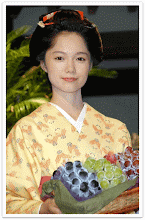In previous posts we have talked much about Takeda Shingen and Uesugi Kenshin as our favorite Warlords of the Sengoku Jidai or Warring States Period. Up until now we have deliberately avoided Oda Nobunaga until we had reached a point where we could better understand him and his motivations. I can honestly say I have reached that point. You see as both a Koyasan Buddhist and Shinto practitioner, I have been troubled with the knowledge of a godless Oda destroying temples & shrines and in that process murdering it's priests. In war there are always motivations not always clearly defined nor understood. The issue was raised in this recent election cycle of when churches interfere with politics or take sides if consequences should follow. In the Sengoku Jidai consequences rarely left without bloodshed. People just did not mess around back then hence Oda had his reasons. It's not that we sanction murder nor agree with his actions at Mt. Hiei and Ise but this was the Warring States Period and to say this was his only controversy would be a mere oversimplification distracting from his many great accomplishments.
In our writings and research for American Mishima's upcoming novels we have paid much attention to the Bakumatsu Era Samurai and the Boshin War. What is not always realized outside of Japan is that the same problems faced by Katsu Kaishu & Sakamoto Ryoma were the very same problems faced 300 years earlier when the Portuguese & Dutch arrived on Japan's shores. Faced with a growing threat from the West and true understanding of Japan's place in the world it was Oda Nobunaga who like Katsu Kaishu understood the urgency to modernize Japan as one country in order to save it from being conquered. But given his time, the only way this would happen would be by brute force and a sea of blood. Understanding this crisis, Oda Nobunaga took action that would ultimately lead to an end of the era of big warring armies of feudal states. But as history recalls, Oda would never complete his mission due to the betrayal by Akechi Mitsuhide whose army attacked Oda at the Honnō-ji Temple. Nobunaga's grand vision for a unified Japan would fall onto his successors Hideyoshi Toyotomi and Ieyasu Tokugawa. But give the devil his due. It took one man to start that process and that man was Oda Nobunaga.
We have seen many depictions of the great Warring States Period Warlord played by many great actors but I must state that it is Etsushi Toyokawa's performance in Princess Go that really put a tangible feel for who this man was. Albeit NHK Taiga Drama's tend to romanticize a bit, it is still draws you in on a level of what their world was like. Etsushi Toyokawa (featured in the above photos from Princess Go) who we recently featured in The Sword of Desperation plays Oda Nobunaga with deep conviction and a sense of realism one could imagine the real Oda having. It is not to say he is portraying Oda as a nice Lord but that of one of strong fortitude and iron resolve that is not lost on his own humanity. In Etsushi Toyokawa's portrayal, he personifies a man of reason and intellect that has either been absent from other depictions that came off rather cold or well acted yet too brief to truly savor. Etsushi Toyokawa truely delivers as both a capable actor and a powerful one at that I would see anything this man would appear in. But it is Toyokawa's portrayal of Oda that has changed my view on the Warlord to one of admiration. (Damn NHK for making me like this Lord!) If you are an affectionado of what one fellow blogger calls the Man who Changed the World, then I invite you to indulge in this latest depiction of what the Great Sengoku Jidai Warlord Uesugi Kenshin called "The Greatest General of his Time" in NHK's 50th Taiga Drama Princess Go.
Enjoy!
To find Princess Go and other Taiga Drama please visit our man Eddie at


























No comments:
Post a Comment